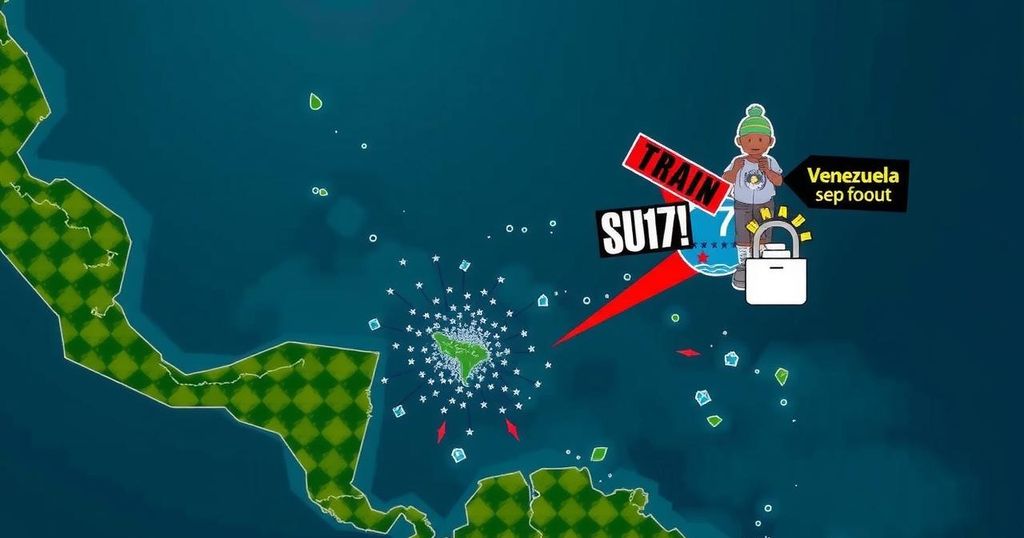Migration across the Darien Gap grew substantially in September 2024, led by Venezuelans fleeing post-election repression. Despite efforts from Panamanian authorities to manage the influx, humanitarian aid remains limited, exacerbating the challenging conditions faced by migrants.
In September 2024, migration through the Darien Gap, a challenging jungle region connecting Colombia and Panama, experienced a significant surge, predominantly driven by Venezuelans in the aftermath of the recent presidential election in Venezuela. According to government data from Panama, there was a considerable increase in the crossing of migrants during this period, prompting concerns from human rights organizations about the ability to provide adequate assistance to these individuals. The situation has escalated since the controversial election held on July 28, 2024, which led to increased repression in Venezuela. As a result, many Venezuelans have sought refuge in other nations. A recent report from Refugees International highlighted that over half a million migrants traversed the Darien in 2023, with Venezuelans constituting over 65% of that figure. President José Raúl Mulino, who took office on July 1, 2024, has introduced measures aimed at controlling migration, including the closure of certain access points and initiating a repatriation program in consultation with the United States, which will facilitate deportation flights for inadmissible migrants. However, Venezuelans have been excluded from this plan due to the diplomatic strain between Panama and Venezuela, following Panama’s decision to diminish relations with Caracas in response to the controversial elections. Despite a reported overall decrease of 36% in migrant crossings during the year as compared to the previous year, September alone witnessed 25,111 migrants making the perilous journey, representing a per month increase of 51% since August, with 80% identified as Venezuelan. The migration experience remains perilous; less humanitarian assistance is available to those arriving in Panama, especially for non-Venezuelans who face potential deportation threats. The reduction in humanitarian support has been partially attributed to the suspension of Doctors Without Borders (MSF) services, which provided essential medical assistance but faced cessation under the previous administration. Wednesday, MSF announced the resumption of its activities, having received permission for a three-month intervention to assist migrants at the Lajas Blancas reception station. It had previously served more than 72,700 migrants with medical care from early 2023 to February 2024. As the complexities around migration persist, the situation remains fragile, demanding urgent attention from authorities and humanitarian organizations.
The Darien Gap serves as a hazardous transit route for migrants fleeing from various countries, with Venezuelans significantly impacted due to the political and social instability in their home nation. Following Venezuela’s controversial presidential elections in 2024, many citizens have sought to escape oppressive conditions, contributing to a marked increase in migration through this treacherous terrain. Panamanian authorities have occasionally attempted to manage the inflow of migrants through policy changes, but the humanitarian support available has diminished, complicating the journey for those in need. The presence of organizations such as Doctors Without Borders has been critical in providing necessary medical assistance, although their recent suspension raised concerns about the welfare of those traveling the dangerous route.
In summary, the increase in migration through the Darien Gap, particularly among Venezuelans following the recent elections, reflects both the pressing need to escape deteriorating conditions and the challenges related to humanitarian support upon arrival. While the Panamanian government has taken steps to regulate the flow of migrants, significant challenges remain in effectively addressing the needs of this vulnerable population.
Original Source: apnews.com






